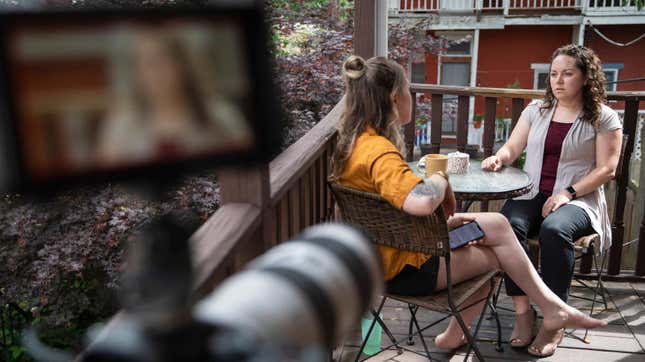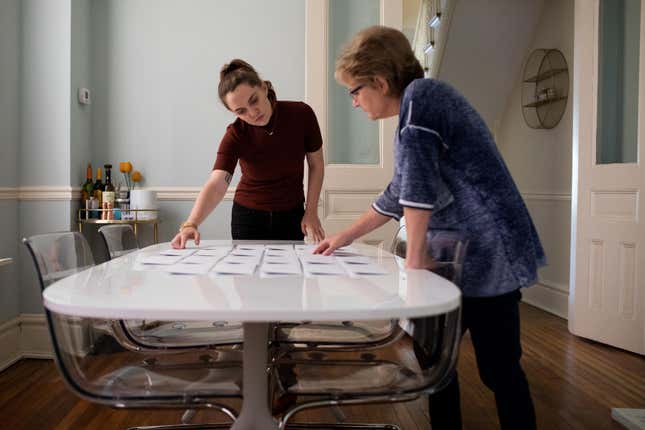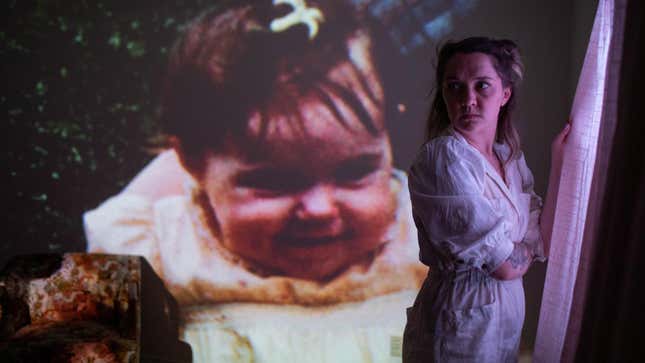How Amanda Mustard Confronted More Than Her Pedophile Grandfather in ‘Great Photo, Lovely Life’
“I made this thing to be this Rorschach test for people,” Mustard told Jezebel of her HBO documentary, which is a rare revelation of family trauma.


Every family has its own lore. If you’re lucky, yours is a treasure chest of tales trotted out at gatherings to warm the cockles or wrest a chuckle from your uncle who’s reluctantly returned to the dinner table for the first time since Trump left office. Unfortunately, for others, the stories are more sinister and require the kind of scrutiny their elders are either ill-equipped or unwilling to account for. At some point, every new generation is faced with a choice: Continue to shirk them off or look longer and add some needful specifics for the next. Photojournalist Amanda Mustard leaned all the way into the latter. Now, anyone with a subscription to Max can become privy to a story that’s beset her family for decades: her grandfather, Bill Flickinger, was a prolific pedophile and convicted sex offender.
It’s been over a month since Great Photo, Lovely Life–Mustard’s staggering documentary about the now-deceased Flickinger and his decades of sexual abuse–premiered, and nearly a year since it began the festival rounds, yet the discourse endures. Mustard is very much engaged.
“I made this thing to be this Rorschach test for people,” the 33-year-old first-time filmmaker told Jezebel of Great Photo, Lovely Life, which was filmed over eight years and co-directed by Rachel Beth Anderson. “I very intentionally do not try and tell you how to feel but to reckon with whatever’s coming up in all of its complexity. To me, it’s like taking the temperature of where we’re at as a society.”
Production began in 2014 when Mustard sat down with Flickinger for an interview. That conversation, she said, was her first attempt to get answers for herself and her family, and accountability for the scores of his victims–including, as it’s later revealed, her mother, Debi, and older sister, Angie. Flickinger responded with revolting frankness. Less than five minutes into the film, he describes one instance as “quite an engagement.” Of another, he says he “more or less experimented” with a prepubescent girl. What emerged is a film that manages to be grim, not glib; incisive instead of incendiary; and a conclusion that offers both answers and salient questions about intergenerational trauma, women’s complicity in men’s wrongdoing, and the ways forgiveness can harm rather than heal.
“In the evangelical faith that my family adheres to, not forgiving is equal to the sin that was committed against you, which is insane. But it’s also a milder form of victim-blaming.”
Mustard is well aware that Great Photo, Lovely Life could’ve been the kind of true crime retelling you’d find on Investigation Discovery or Netflix. “My pedophile grandpa…” Mustard says, imagining an alternative, Abducted in Plain Sight-esque take on her family’s story. But with a rich archive of photographs and home movies, Great Photo Lovely Life surpasses any ripped-from-the-headlines salaciousness and becomes a searing rumination not of a “monster” but a truly reprehensible human whose actions had a ruinous effect on innumerable lives.
“We so rarely hear the perspective of a perpetrator,” Mustard said of the importance of confronting her grandfather onscreen. “As a survivor myself, it is weirdly healing to see somebody own it. There’s value in that. My whole question that led me to that interview in the first place was, ‘How did we get here?’”
-

-

-

-

-

-

-

-

-

-

-

-

-

-

-

-

-

-

-

-

-

-

-

-

-

-

-

-

-

-

-

-

-

-

-

-

-

-

-

-










































